
 The SFFaudio Podcast #338 – Jesse, Tamahome, and Paul talk about new releases and recent arrivals (audiobooks, books, and comics).
The SFFaudio Podcast #338 – Jesse, Tamahome, and Paul talk about new releases and recent arrivals (audiobooks, books, and comics).
Talked about on today’s show:
Aftermath: Star Wars (Journey to Star Wars: The Force Awakens) by Chuck Wendig, read by Marc Thompson, not a curse fest, the crawl, grief, The Geeks Guide To The Galaxy, one star reviews, diversity up down left and sideways, a pink lightsaber, a rainbow lightsaber, Timothy Zahn, sounds like Star Wars names, Heirs Of Empire by Evan Currie, read by Deric McNish, Brilliance Audio, it sounds like a Stars Wars book (but isn’t), a 47 North Novel, The Three Stigmata of Palmer Eldritch by Philip K. Dick, read by Luke Daniels, drugs!, sounds trippy, re-reading Philip K. Dick (for The SFFaudio Podcast), different assumptions, by the inventor of Science Fiction… In the Days of the Comet by H.G. Wells, read by Walter Covell, the salvation of the human race, cynical then preachy, The Star by H.G. Wells, The Poison Belt by Sir Arthur Conan Doyle, 1906, The World Set Free, The Sea Lady by H.G. Wells (a mermaid in Edwardian society), Stranger In A Strange Land by Robert A. Heinlein, a comedic bicycling novel, military SF, David Weber, The Child by Keith F. Goodnight, read by Nick Podehl, Tam’s macho voice, Adam Christopher’s The Burning Dark, Event Horizon, hyperspace as a Hellraiser universe, this all goes back to H.P. Lovecraft’s From Beyond, drugs plus radar shadowing, a terrific adaptation The Banshee Chapter, the 1980s adaptation of From Beyond, fear of the dark in a lighted world, The Oncoming Storm by Christopher G. Nuttall, read by Lauren Ezzo, the youngest captain in naval (future) history, what is 47 North? it’s Amazon’s publishing house, synergy, PlayStation has it’s own TV show (based on a comic book called Powers), an Honor Harrington novel with the serial numbers filed off, fantasy (non epic), Locke And Key by Joe Hill, adapted by Elaine Lee and Frederick Greenhalgh, audio drama, AudioComics, 13.5 hour audio drama, Gabriel Rodriguez, Paul needs to get Welcome To Lovecraft, horror, dark fantasy, hyper-imaginative, Joe Hill looks and writes like his dad (Stephen King), kids in a creepy situation, the manipulation of power, more fantasy elements, the origins of the keys at Key House, back stories, Fred Greenhalgh as a champion of field recorded audio drama, a film production unit without cameras, listening with headphones, this could be the star of something really amazing, the business model, word-of-mouth then the long tail?, Elaine Lee’s Starstruck, William Dufris, epic fantasy, Twelve Kings In Sharakhai (Song of Shattered Sands #1) by Bradley P. Beaulieu, read by Sarah Coomes, Paul is a fan of Bradley P. Beaulieu’s writing, “his best novel yet”, it is impossible to promote books you aren’t enthusiastic about, “the ones that sing to the song in your blood”, Paul is a long term epic fantasy fan, true confessions, Robert Jordan, Brandon Sanderson, epic fantasy as a lifestyle choice, Kate Elliot, The Cinder Spires: The Aeronaut’s Windlass by Jim Butcher; read by Euan Morton, Penguin Audio, urban fantasy, airships!, a new steampunk secondary world, beautiful endpapers and maps Priscilla Spencer, books in the middle of series: Darken the Stars (Kricket #3) by Amy A. Bartol, read by Kate Rudd, The Ciphers of Muirwood (Covenant of Muirwood #2) by Jeff Wheeler, read by Kate Rudd, Unholy War (The Moontide Quartet #3) by David Hair, read by Nick Podehl, Dryad-Born (Whispers from Mirrowen #2) by Jeff Wheeler, read by Sue Pitkin, Jenny’s favourite section “dystopia, unrest, destruction, apocalypse”, an interesting theory about zombies and dystopias, it fits in with the Christian end times, Revelations and rapture theology, the 1950s optimism, we’re not in Star Trek times anymore, 2 Walking Dead TV series and Z Nation, zombies never die, The Heart Goes Last: A Novel by Margaret Atwood, read by Cassandra Campbell and Mark Deakins, an economic and social collapse, the “Positron Project”, what is the point of the premise?, allegory not SF?, an Asimovian word, she doesn’t really care about the consequences of science, people who are interested in science, Ted Chiang, what if…, doesn’t that mean XYZ?, let her write her books, paranormal romance, Dark Ghost (Dark Saga #28) by Christine Feehan, read by Phil Gigante and Natalie Ross, a bounty hunter, a vampire slayer, a geologist, fairy tales, Two Years Eight Months and Twenty-Eight Nights by Salman Rushdie, read by Robert G. Slade, history and folklore, “the time of the strangenesses”, a djinn, 1,001 nights (two years, eight months, and twenty-eight nights), a Nobel Prize for Literature, a print book, Joy To The Worlds: Mysterious Speculative Fiction For The Holidays, a mix of mystery and speculative fiction and Christmas, Maia Chance, Janine A. Southard, Raven Oak, G. Clemans, upcoming authors, Andy Weir, that’s how the young people are reading, get of Tam’s lawn, House Of M, Marvel Comics, why is Thor a girl now?, Scarlet Witch can re-write reality, annoying-off people(?), the $1 floppy deals, Free Comic Book Day, The Unbeatable Squirrel Girl is fun and fabulous, her squirrel sidekick, a silver age happy go lucky superhero in our cynical grim age, she’s got squirrel blood!, writing comics for kids, Genosha, kids Squirrel Girl cosplaying looks fun, making your own costume, Princess Leia (Marvel Comics/Star Wars), there’s something wrong with Princess Leia, Disney is making so much more product than Lucas, Alan Moore and Jacen Burrow’s Providence (Avatar comics), Neonomicon, when will the first Providence trade come out, what Moore is doing and saying with Providence, an examination and meditation on H.P. Lovecraft stories, Providence doesn’t seem to have a very important plot, Herbert West’s equivalent, if you are deeply involved in Lovecraft…, if you don’t know Lovecraft can you still enjoy Providence?, the turns!, not merely visually shocking, The Dunwich Horror, a trans-dimensional invisible character, Moore is wrestling with Lovecraft, Watchmen, Alan Moore and Gabriel Andrade’s Crossed Plus One Hundred, “124C41+”, “Return Of The King”, “Glory Road”, “A Canticle For Leibowitz”, “Tyger, Tyger”, “Foundation and Empire”, the difference between crossed zombies and regular zombies, the Crossed series, Alan Moore is about thinking deeply about things, evolution, “the big surprise of 2008”, bone piles, the change of language, AFAWK, Moore has reconstructed English in the way of A Clockwork Orange or Anathem, zombies as a fear of death, zombies as a fear of loss of individual volition and personality, a fear of Alzheimer’s, we don’t talk about death, The Walking Dead Volume 12 (hardcover), everybody’s infected, no matter what happens you become a zombie, zombies as a non-scary version of momento mori, Brian K. Vaughn and Steve Skroce’s We Stand On Guard, the invasion of Canada by the United States, the only time Canada has ever been invaded was by the United States, reading for writers not for artists, the Dark Adventure Radio Theatre series, The H.P. Lovecraft Historical Society, DART The Horror At Red Hook, a straight up adaptation of The Horror At Red Hook by H.P. Lovecraft, DART Dagon: War Of Worlds, Dagon by H.P. Lovecraft, imagine War Of The Worlds not from Space but from beneath, X-COM: UFO DEFENSE, X-COM: Terror From The Deep, aliens at the bottom of the ocean, the Orson Welles style War Of The Worlds, mapping out all of Lovecraft’s squiddy watery fears, The Shadow Over Innsmouth, The Call Of Cthulhu, “I love that!”, attention to detail, if it says it in the story they take it seriously, The Whisperer In Darkness, Infocom games included props, H.P. Lovecraft The Spirit Of Revision Lovecraft’s Letters To Zealia Brown Reed Bishop, David Michelinie and Brett Blevins’ The Bozz Chronicles, originally from Epic Comics, a 19th century Sherlock Holmes alien mashup, lots of nudity, The New Mutants artist, Dover Publications, a 200 page trade-paperback for $20, a feel of the new Doctor Who, Madame Vastra, what if Sherlock Holmes was not Sherlock Holmes, Fred Saberhagen’s Bezerker story, Fred Saberhagen’s Dracula novels, Conan Red Sonja, a lack of attention to details, 1980s sensibilities vs. 20teens sensibilities.

Posted by Jesse Willis


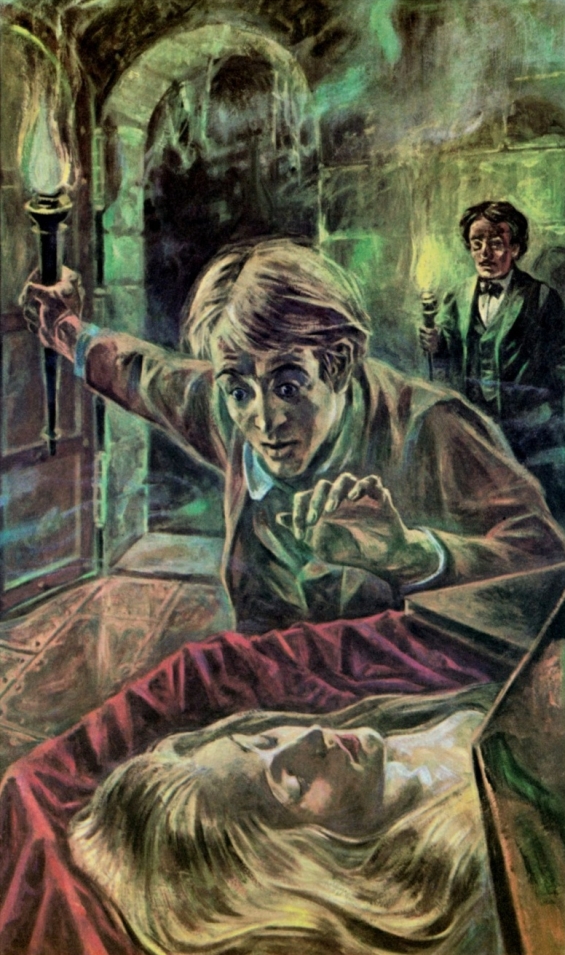
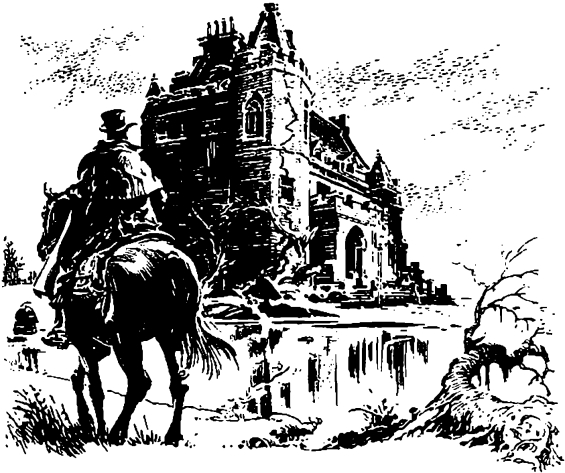

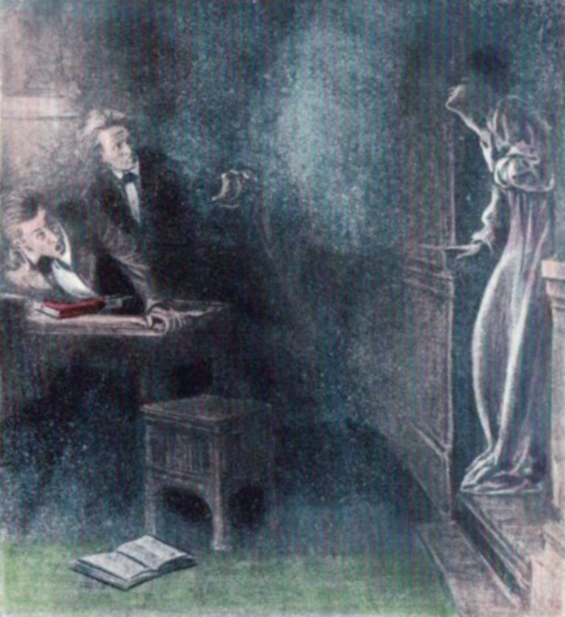

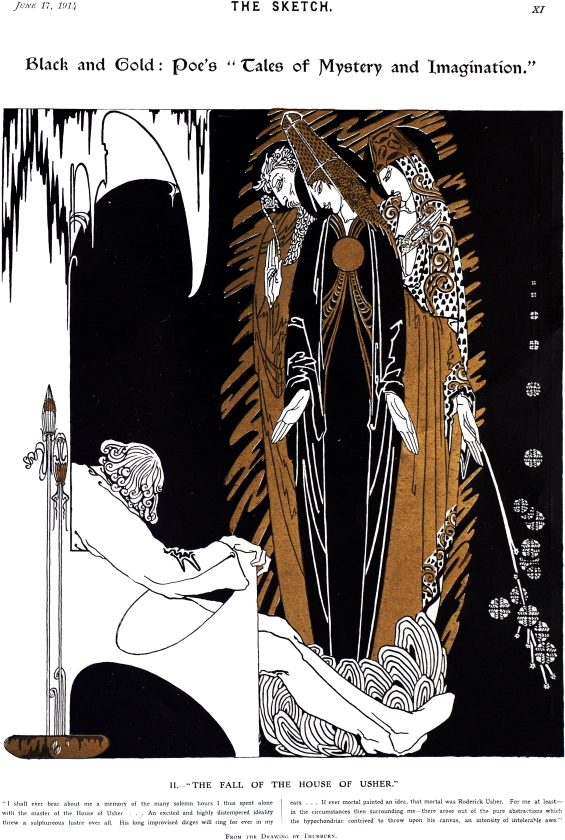
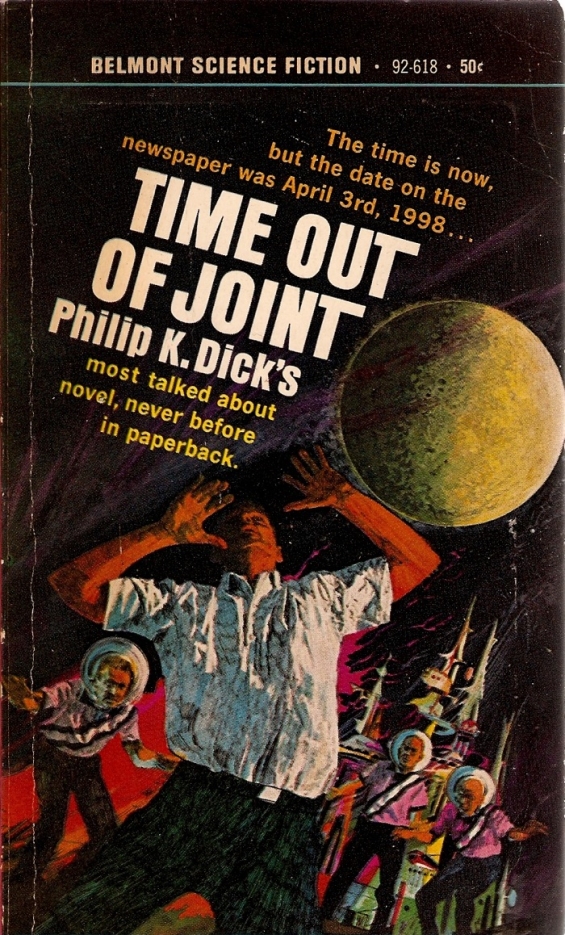
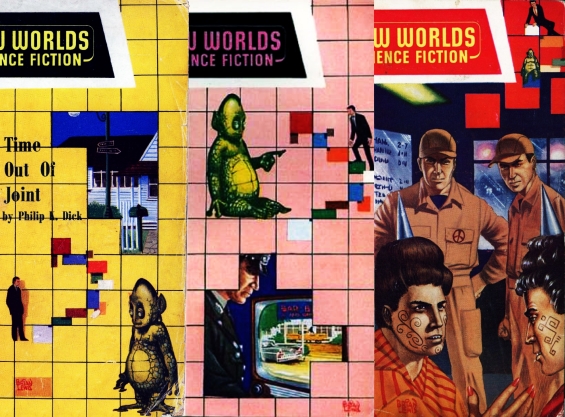
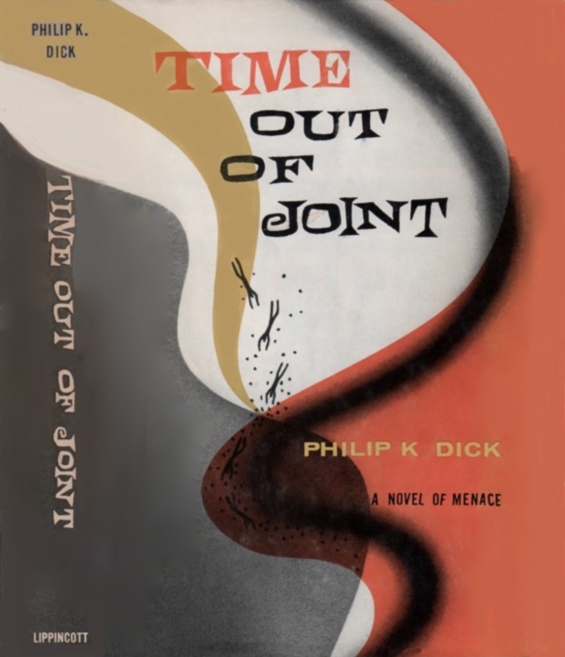
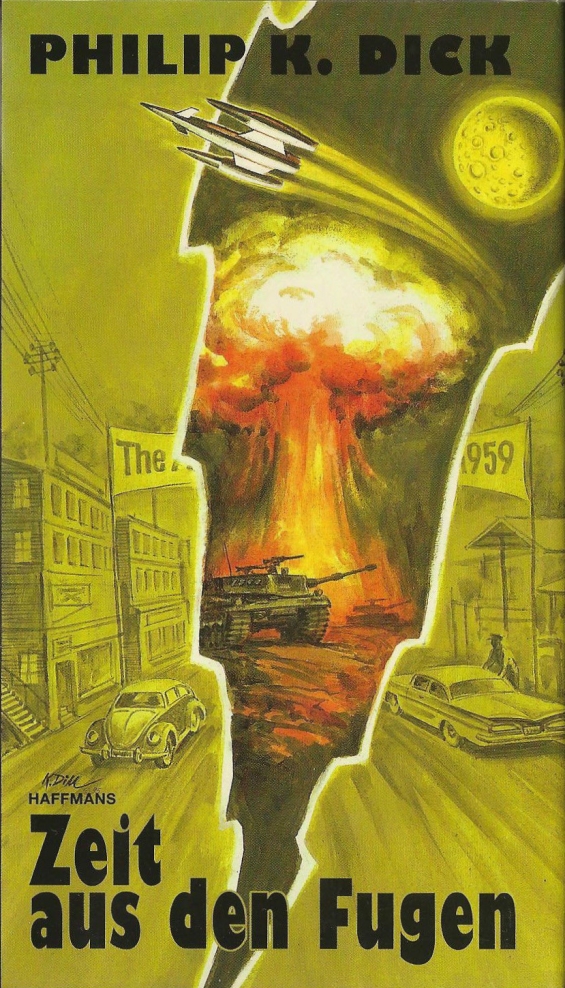

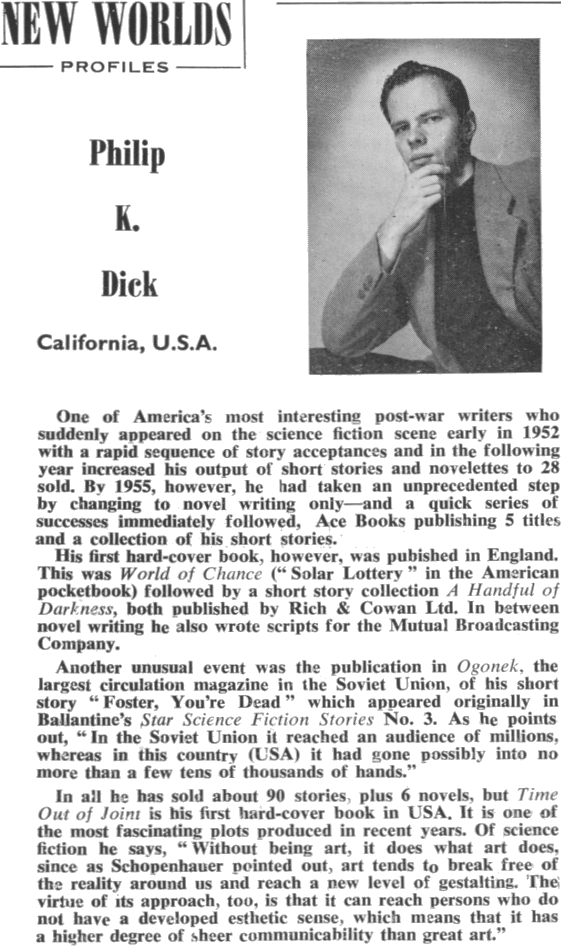
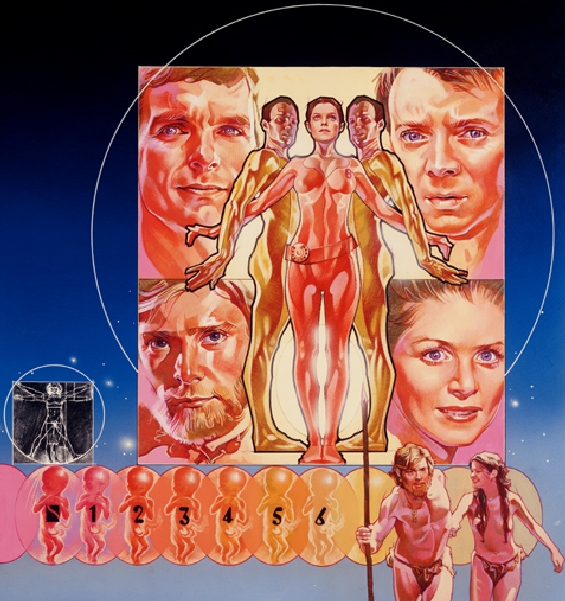
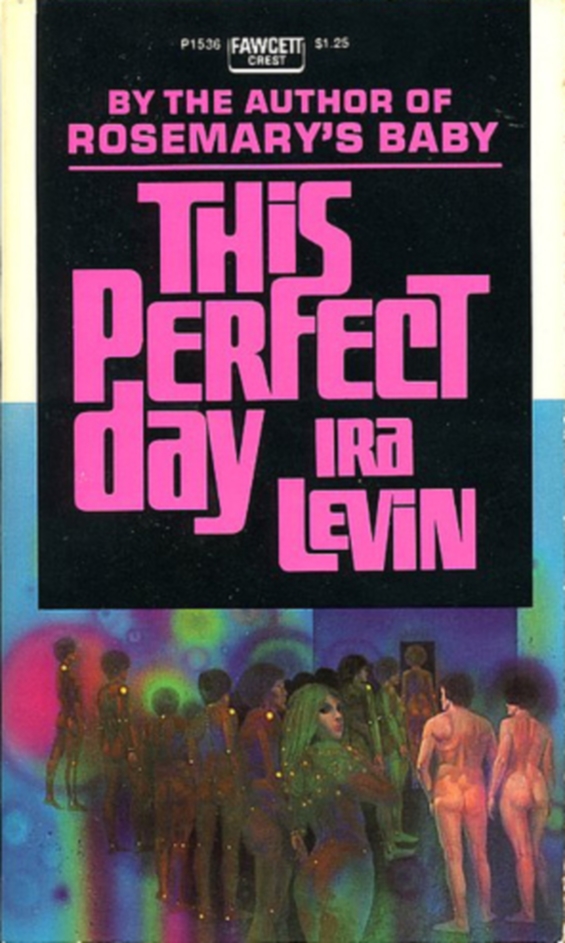



 The Peripheral
The Peripheral